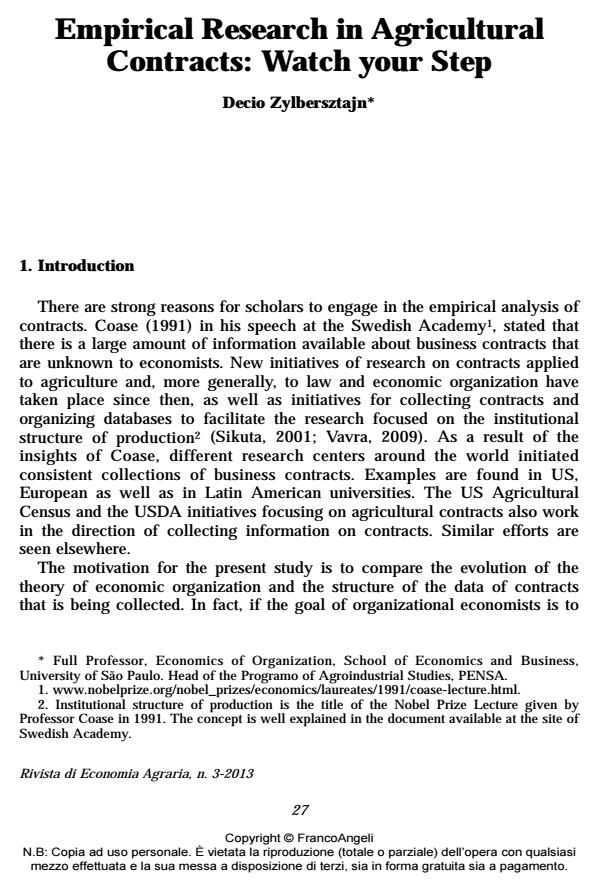La ricerca empirica nei contratti agricoli: procedere con cautela
Journal title RIVISTA DI ECONOMIA AGRARIA
Author/s Decio Zylbersztajn
Publishing Year 2014 Issue 2013/3
Language Italian Pages 14 P. 27-40 File size 50 KB
DOI 10.3280/REA2013-003002
DOI is like a bar code for intellectual property: to have more infomation
click here
Below, you can see the article first page
If you want to buy this article in PDF format, you can do it, following the instructions to buy download credits

FrancoAngeli is member of Publishers International Linking Association, Inc (PILA), a not-for-profit association which run the CrossRef service enabling links to and from online scholarly content.
The present study compares the evolution of the theory of economic organization with the structure of agricultural contracts on on the basis of specific empirical data. In a nutshell, if the goal of organizational economists is to study how the real economic system works, then I raise the argument that the use of data collected on agricultural contracts does not provide sufficient information and only captures part of the structure of the incentives in most of the institutional arrangements. The proposition is that if data based on existing contracts is used, not considering transactions governed by means other than formal contracts, or not considering dynamic relational and learning aspects embedded in the contractual relation, the results can lead to false conclusions.
Keywords: Contratti agricoli, meccanismi informali di transazione, evidenze empiriche
Jel codes: Q10, L1, L14
Decio Zylbersztajn, Empirical Research in Agricultural Contracts: Watch your Step in "RIVISTA DI ECONOMIA AGRARIA" 3/2013, pp 27-40, DOI: 10.3280/REA2013-003002